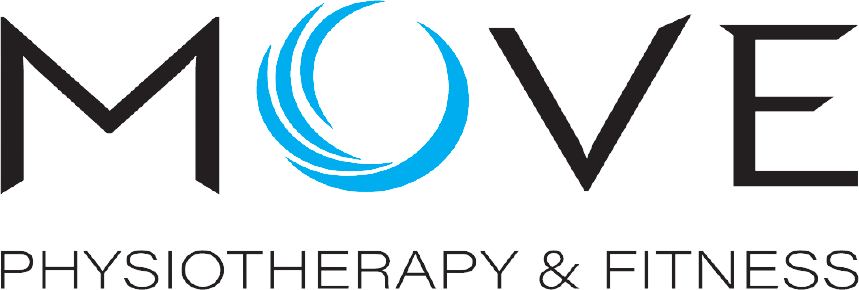Vestibular Physio in Booragoon & Beeliar
If you’re struggling with dizziness, vertigo, nausea, or a constant sense of imbalance, you’re not alone—and you’re not imagining it. These symptoms often stem from dysfunction in the vestibular system, the part of your inner ear and brain responsible for balance and spatial awareness.
At Move Physiotherapy, we specialise in vestibular rehabilitation—an advanced area of physiotherapy designed to assess and treat these conditions through evidence-based techniques and targeted exercise. Whether you’re experiencing short bursts of vertigo, ongoing unsteadiness, or sensitivity to head movements and visual environments, our team is here to help.
Every patient begins with a detailed, one-on-one assessment to pinpoint the cause of your symptoms. From there, we create a tailored treatment plan focused on restoring your balance, improving confidence with movement, and helping you return to daily life with stability and ease.
We don’t just treat symptoms—we help you understand what’s going on in your body. You’ll leave each session with practical tools, clear explanations, and a plan that adapts as you progress.
We’re proud to offer vestibular physiotherapy across Perth at our Booragoon, Beeliar, and East Fremantle clinics. If you’re ready to stop feeling dizzy and start moving with confidence again—we’re here for you.
Benign Paroxysmal Positional Vertigo (BPPV)
BPPV is one of the most common causes of vertigo, and it can feel quite alarming if you’ve never experienced it before. It’s caused by tiny calcium crystals in the inner ear that become dislodged and move into areas they shouldn’t be, disrupting your balance system.
People with BPPV often describe a sudden spinning sensation when they roll over in bed, look up, or bend forward. These dizzy episodes are usually brief but can be intense—sometimes leading to nausea, a sense of imbalance, or even falls. BPPV can affect individuals of all ages but is most prevalent between 50 and 70 years. It may also occur after a head injury, illness, or extended bed rest.
Before beginning treatment, your physiotherapist will perform a few gentle tests—such as the Dix-Hallpike manoeuvre—to confirm the diagnosis and pinpoint which part of your inner ear is affected. This ensures we tailor the treatment precisely to your needs.
The great news is that BPPV responds extremely well to physiotherapy. At Move Physiotherapy, we use specific repositioning techniques—such as the Epley Manoeuvre—to gently guide the crystals back to where they belong. This involves a series of carefully controlled head and body movements, performed with your physio in a safe, supported environment. The treatment is quick, non-invasive, and highly effective, with most people noticing significant improvement within one or two sessions.
Treating BPPV early is important—not only to relieve the distressing symptoms but also to reduce your risk of falls and help you move with confidence again.
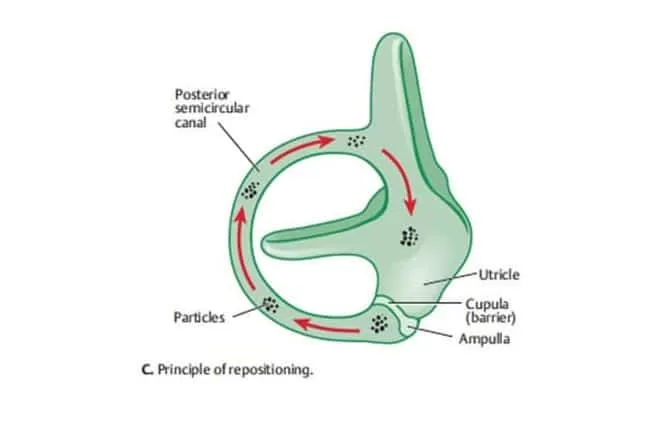
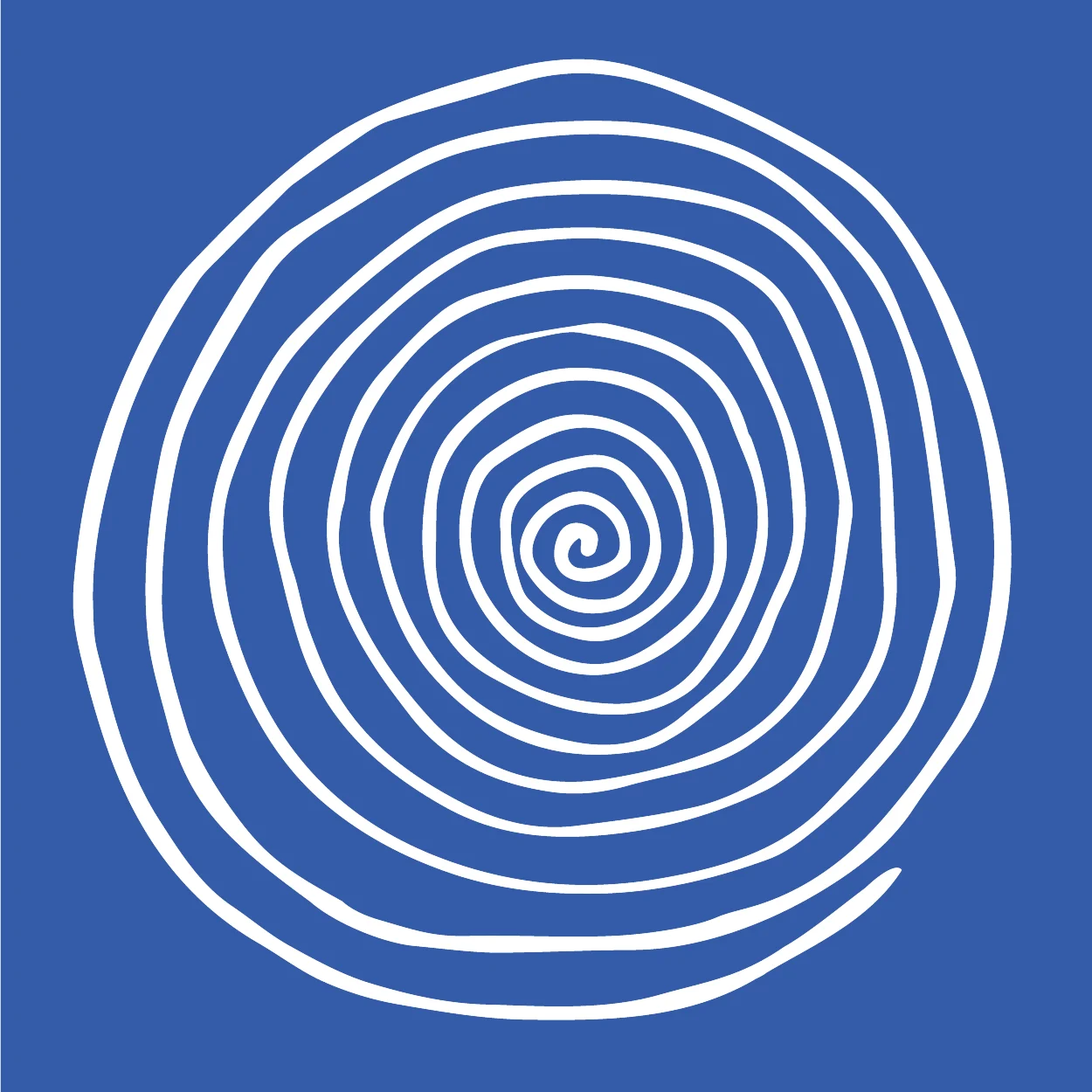
Instant Relief From BPPV.
If you’ve recently started feeling like the room is spinning, especially when lying down or turning your head, it might be BPPV.
It’s a common cause of vertigo—and it’s treatable.
Many people see noticeable improvement after just one or two sessions with our vestibular-trained physios.
You don’t have to live with this. Let’s fix it together.
Vestibular Neuritis & Labyrinthitis
Vestibular neuritis and labyrinthitis are both conditions that affect the inner ear and balance system, typically caused by a viral infection. They can come on suddenly and cause intense vertigo, nausea, and difficulty walking—often lasting for hours or even days.
The main difference between the two is that labyrinthitis also affects your hearing, while vestibular neuritis usually does not. People with these conditions often report:
- Sudden, severe dizziness or vertigo
- Nausea or vomiting
- Difficulty walking or focusing
- Feeling off-balance for days or weeks
- Hearing loss or ringing in the ear (labyrinthitis only)
Most people start to feel better after the first few days, but some experience lingering symptoms like dizziness, visual sensitivity, and imbalance for weeks—even after the infection has resolved.
At Move Physiotherapy, we help people recover from vestibular neuritis and labyrinthitis by retraining the brain to adapt to changes in balance. Through a tailored vestibular rehabilitation program, we guide you through exercises that restore your stability, reduce dizziness, and help you move confidently again.
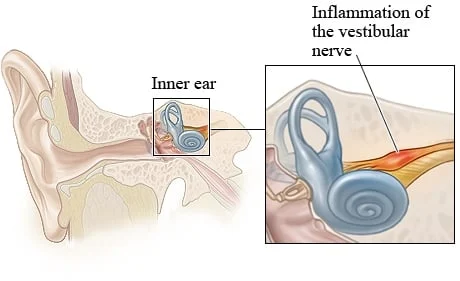

That Lingering Dizziness After a Virus? It Might Be Vestibular Neuritis.
If you’ve recently had a cold, flu, or ear infection—and now the room feels like it’s spinning—you’re not imagining it.
Vestibular neuritis is a common inner ear condition that can leave you feeling dizzy, off-balance, and drained.
The good news? With vestibular physiotherapy, you can retrain your balance system and feel like yourself again.
Most people start to feel more steady and confident within just a few sessions.
You don’t have to wait it out. Let’s help you recover.
Meniere’s Disease
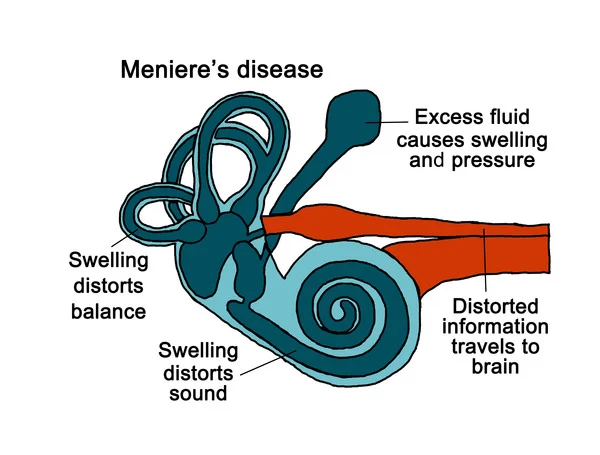
Ménière’s disease is a long-term inner ear condition that can cause sudden, intense episodes of vertigo, along with hearing changes and a feeling of pressure or fullness in the ear. It’s thought to be linked to abnormal fluid buildup in the inner ear, and it typically affects only one ear.
People with Ménière’s disease often experience a combination of symptoms during an attack, including spinning vertigo, nausea, ringing in the ear (tinnitus), a sensation of fullness, and fluctuating hearing loss. Attacks may last from 20 minutes to several hours, and they can leave you feeling off-balance and fatigued for days afterward.
Ménière’s disease is most commonly diagnosed in people between the ages of 40 and 60. Diagnosis usually involves a hearing test (audiometry), balance assessments, and ruling out other potential causes. A specialist may order additional investigations like an MRI to support the diagnosis.
While there is currently no cure, physiotherapy can play a vital role in helping you manage the condition between attacks. This includes improving balance, addressing long-term dizziness or visual sensitivity, and building confidence with movement. Our vestibular rehab programs focus on retraining the brain to better interpret signals from the balance system, helping to reduce symptoms and improve stability.
We also provide guidance on lifestyle changes that can reduce the frequency and severity of episodes. We’ll work closely with your GP or ENT specialist to ensure you receive holistic care and support.

While There’s No Cure, There Is a Plan
Ménière’s disease can feel unpredictable and isolating—but there are ways to regain control.
At Move Physiotherapy, we help people manage balance issues, reduce dizziness between episodes, and move with more confidence.
Our vestibular rehab programs are designed to support your long-term stability, in partnership with your medical team.
Let’s take the next step together.
